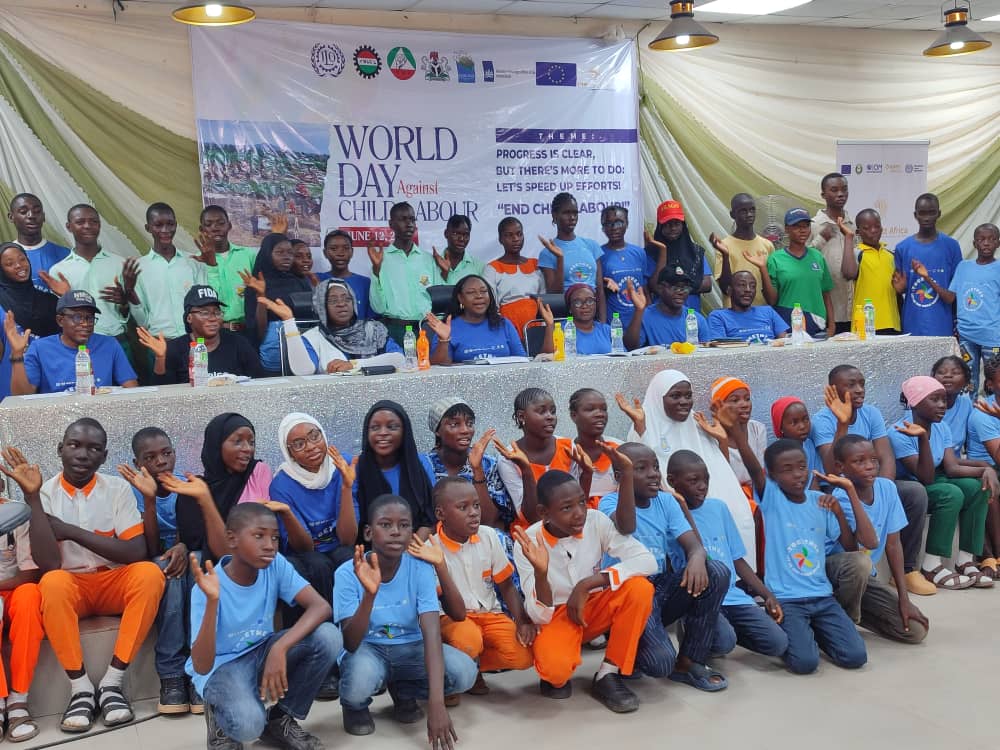ILO calls for collective action against child labour
By Rita Iliya
The International Labour Organisation (ILO) has called for collaborative efforts to eliminate child labour, particularly in the cocoa farms and artisanal mining sectors.
Dr Phala Vanessa Country Director of the ILO Office for Nigeria, Ghana, Liberia and Sierra Leone, made the call during a programme to commemorate the 2025 World Day Against Child Labour in Minna on Thursday.
The News Agency of Nigeria (NAN) reports that the theme of the 2025 World Day Against Child Labour is, “Progress is Clear, But there’s More to Do: Let’s Speed Up Efforts!, End Child Labour.
The 2025 event was sponsored by the Government of the Netherlands.
It was implemented by the Federal Ministry of Labour and Employment, in collaboration with the Nigeria Labour Congress (NLC) and Trade Union Congress (TUC).
Vanessa was represented by Mrs Celine Oni, National Coordinator of Accelerating Action for the Elimination of Child Labour in Supply Chains in Africa (ACCEL Africa) Project.
Vanessa said that child labour was a breach of the fundamental human rights of children: boys, girls, adolescents and youths.
“We must work to accelerate efforts to institute zero tolerance for child labour in our cocoa farms, in artisanal mining and in our society,” she said.
She disclosed that ILO and United Nations Children’s Fund on June 11, released a new global estimate on child labour, revealing a significant decline in the number of children engaged in child labour and hazardous work.
She said the new research showed that child labour had decreased from 160 million to 138 million in four years, adding that all regions showed progress with notable declines in Latin America and Sub-Saharan Africa.
According to her, child labour prevalence dropped from 9.6 per cent to 7.8 per cent, saying Latin America saw a drop of 11 per cent while Sub-Saharan Africa saw a 10 per cent drop.
”There is need for strict measures against child labour and priorities for high-risk sectors like cocoa farms and artisanal mining and stakeholders collaboration to end child labour, ” Vanessa said.
Also speaking, Hajiya Hauwa Zakariya, Niger State Controller, Federal Ministry of Labour and Employment, expressed gratitude toward the partners in the fight against child labour.
She urged stakeholders to take charge of efforts to combat child labour in Niger state and the country at large.
Also, Hajiya Hadiza Sheru, Permanent Secretary, Niger Ministry for Women Affairs and Social Development, said that all hands must be on deck to eliminate it.
Similarly, Mr Ibrahim Gana, Chairman of Trade Union Congress of Nigeria, who represented the organised labour, said every child deserved a chance to strive and grow in a safe environment.
He noted that the protection of rights and wellbeing of children were crucial for a better future.(NAN)
Edited by Esenvosa Izah/Joe Idika




